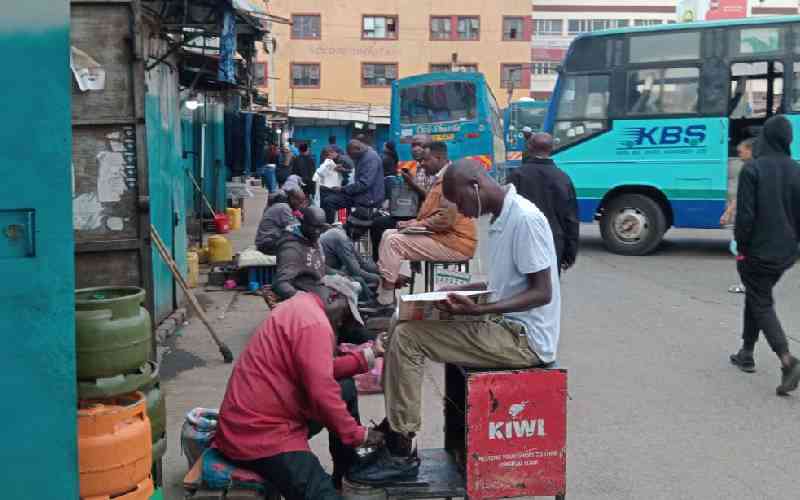×
The Standard e-Paper
Kenya’s Boldest Voice

A shoe shiner attends to his client in Nairobi CBD on March 30, 2023. [Pkemoi Ng'enoh, Standard]
There is general calm in Nairobi's City centre with residents going about their daily businesses normally ahead of todays antigovernment protests by Azimio la Umoja.